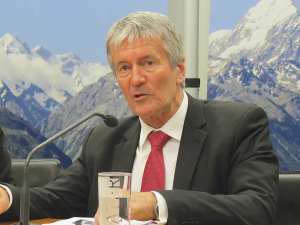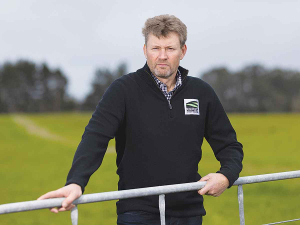OPINION: Hopefully agriculture Minister Damien O’Connor has metaphorically penned his own resignation letter with the release of his government’s agricultural emissions policy.
O’Connor has announced plans to measure and tax agricultural emissions at the farm level to meet the Government’s reduction targets. The tax plan could not come at a worse time – when the dairy payout has dropped $1.25kg/MS and sheep and beef prices are at five year lows.
O’Connor claims that overseas customers have set high reduction targets on emissions, which means that NZ farmers will have to reduce their emissions in order to sell to these markets.
Yet despite all of O’Connor’s – and others’ – talk about overseas customers demanding emissions reductions and a willingness to pay a premium for this, we have yet to see any sign of such premiums or refusals to take our products.
Meanwhile, his claim that the Government has listened, is being flexible and taking a balanced approach is laughable.
Federated Farmers president Wayne Langford rightly described the move as tone deaf. However, to be fair to both O’Connor and the Labour Government they have been completely tone deaf to the agriculture sector for the past six years.
Langford was joined by a chorus of opposition to the government proposal, alongside Beef+Lamb NZ, DairyNZ and the Meat Industry Association.
It appears the much hyped pan sector ‘partnership’ – He Waka Eke Noa (HWEN) – with government on ag emissions has proven to be a joke.
Primary sector leaders were told at 4.30pm on Thursday about the new government policy, which was released at 1pm the next day – despite Cabinet signing it off on the Monday. Great partnership, not!
Sector ‘leaders’ who signed up to HWEN have proven their critics right. They have let the industry down with their weak, meek criticism of government throughout this process, while their claims that it is ‘better to be at the table’ have proven to be as feeble as their representations on behalf of farmers.
If this ag emissions policy does become O’Connor and Labour’s final act to NZ’s agriculture sector, then most will say goodbye and good riddance!











